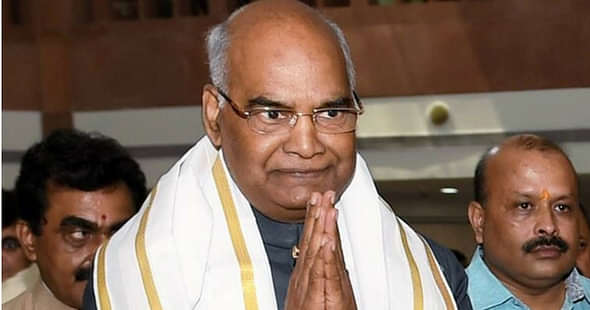- Ram Nath Kovind recently addressed the CSIR Platinum Jubilee celebrations.
- He appealed to the scientific community to take accelerated steps to promote participation of women in science and technology.

Expressing his concern over less participation of women in science research, newly elected President of India, Mr. Ram Nath Kovind has urged respective authorities to take accelerated steps to improve participation of women in the area of technology and science. He supported his statement by describing that in India, out of every ten researchers only two are women - that is not acceptable for a developing country like India. The number of female students joining IITs is also not satisfactory. If the existing gender disparity is not addressed, then the scientific achievements of the country will always be less than desirable and less than perfect, he indicated.
Honourable President was addressing the valedictory ceremony of platinum jubilee celebrations of CSIR. He said that the development goals do not have any meaning without gender parity. Over the past seven decades, CSIR has made enormous progress which shall have been supported by the contribution of women.
Also Read: - Indian Institute of Science Bangalore and CGWB Sign MoA for Conducting Ground Water Research
President Kovind also highlighted different aspects of socially relevant research and indicated that the real test of scientific research lies in the capability of it to help the society leapfrog social sector gaps, whether in agriculture or education, sanitation, health and hygiene. This will further help in making India a middle-income country in one human lifetime. Developing cost-effective products and applications of science and technology would also help the society, he added.
Also Read: - IISER Kolkata Best in Terms of Research Output among IISERs
On the occasion of completing 75 years of its existence, CSIR has dedicated two of its recently developed technologies to the nation. One among them is hand-held milk tester that enables to identify adulterants in milk. The second one, Waterless-Chrome-Tanning Technology eliminates the use of water in processes after and before tanning while minimising solid content dissolved in wastewater during tanning.
Are you feeling lost and unsure about what career path to take after completing 12th standard?
Say goodbye to confusion and hello to a bright future!

Was this article helpful?





 Follow us
Follow us















